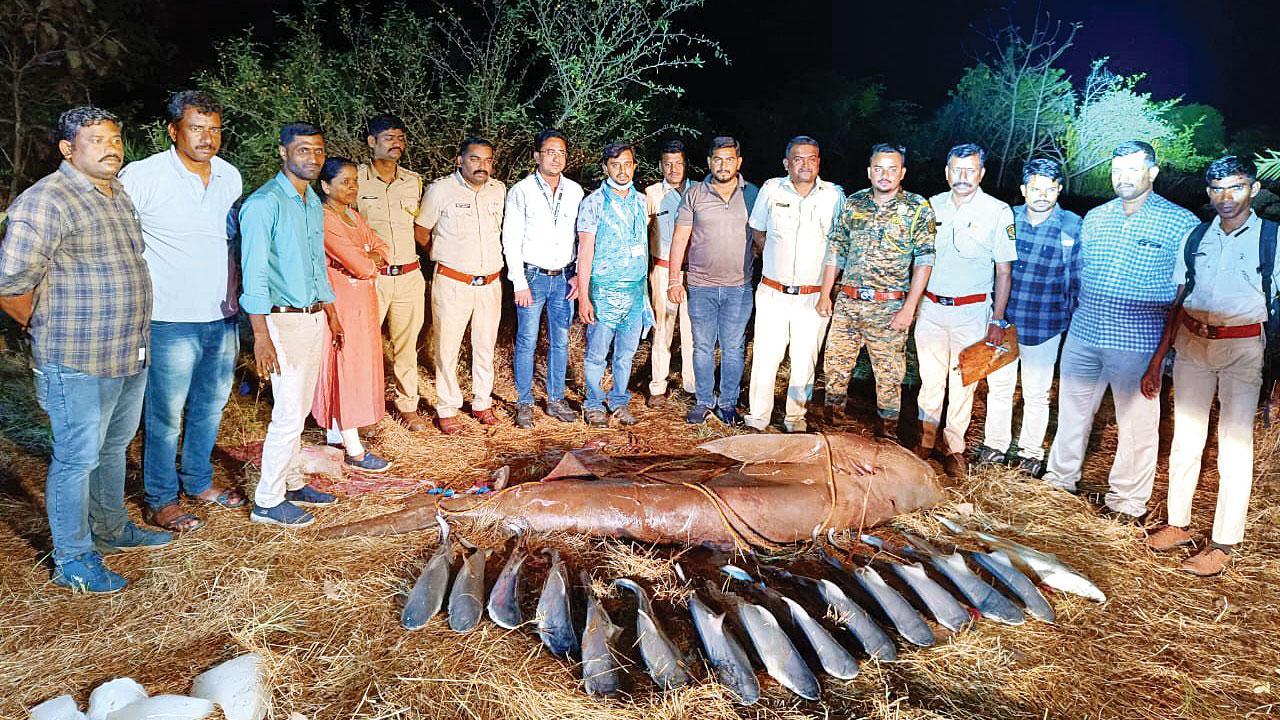
After a 34-year-old fisherman, Hitesh Govari, was attacked by a bull shark in the Vaitarna river in Palghar while swimming on Tuesday, a leading researcher working on sharks told mid-day that India had just 21 unprovoked shark encounters on record in more than 400 years.
During an interaction with mid-day, Alissa Barnes—a leading researcher on sharks— told mid-day that the human-shark conflict in India is extremely rare. “According to the International Shark Attack File, Florida (the only global database that records shark bites), India had 21 unprovoked shark encounters in more than four centuries,” Barnes, co-lead of ‘Sharks and Rays’—a marine program of Wildlife Conservation Society WCS-India—said.
When asked if the bull shark species is commonly found along the west coast of Maharashtra, Barnes said, “The bull shark is a widely distributed species globally and through the Indian subcontinent, occurring in a range of aquatic habitats ranging from the river to the ocean. But bites of this sort are extremely rare.”
Talking about the shark bite data in India, Barnes said that there isn’t a comprehensive dataset on fatal shark bites in India. “Shark bites are extremely rare. The International Shark Attack File, Florida, shows 21 records of unprovoked shark encounters in 444 years,” Barnes said.
Meanwhile, Deputy Conservator of Forest, Dahanu Forest Department, Madhu Mitha confirmed to mid-day that the necropsy on the shark that attacked Govari revealed that the female was carrying 15 pups. Asked about compensation to Govari, Mitha said that an investigation into the incident is in progress and a decision in this regard will be taken once it is completed.
Honorary wildlife warden of Thane, Pawan Sharma criticised the way in which the bull shark was killed. “The fatal bite to the human was very unfortunate, but taking matters into their own hands and killing the bull shark was not the right approach and was unethical. The villagers should have reached out to the forest department to deal with this humanely and scientifically. We have a whole dedicated Mangrove Cell to deal with marine wildlife conservation and conflict mitigation issues,” Sharma said.
According to Sharma, the bull shark was pregnant and that could also be one of the reasons she travelled such a long distance away from the sea, to deliver in a safer environment. “We have not just lost one bull shark but 15 more which were potential carriers of its next and future generations,” Sharma added.
#India #unprovoked #shark #encounters #years